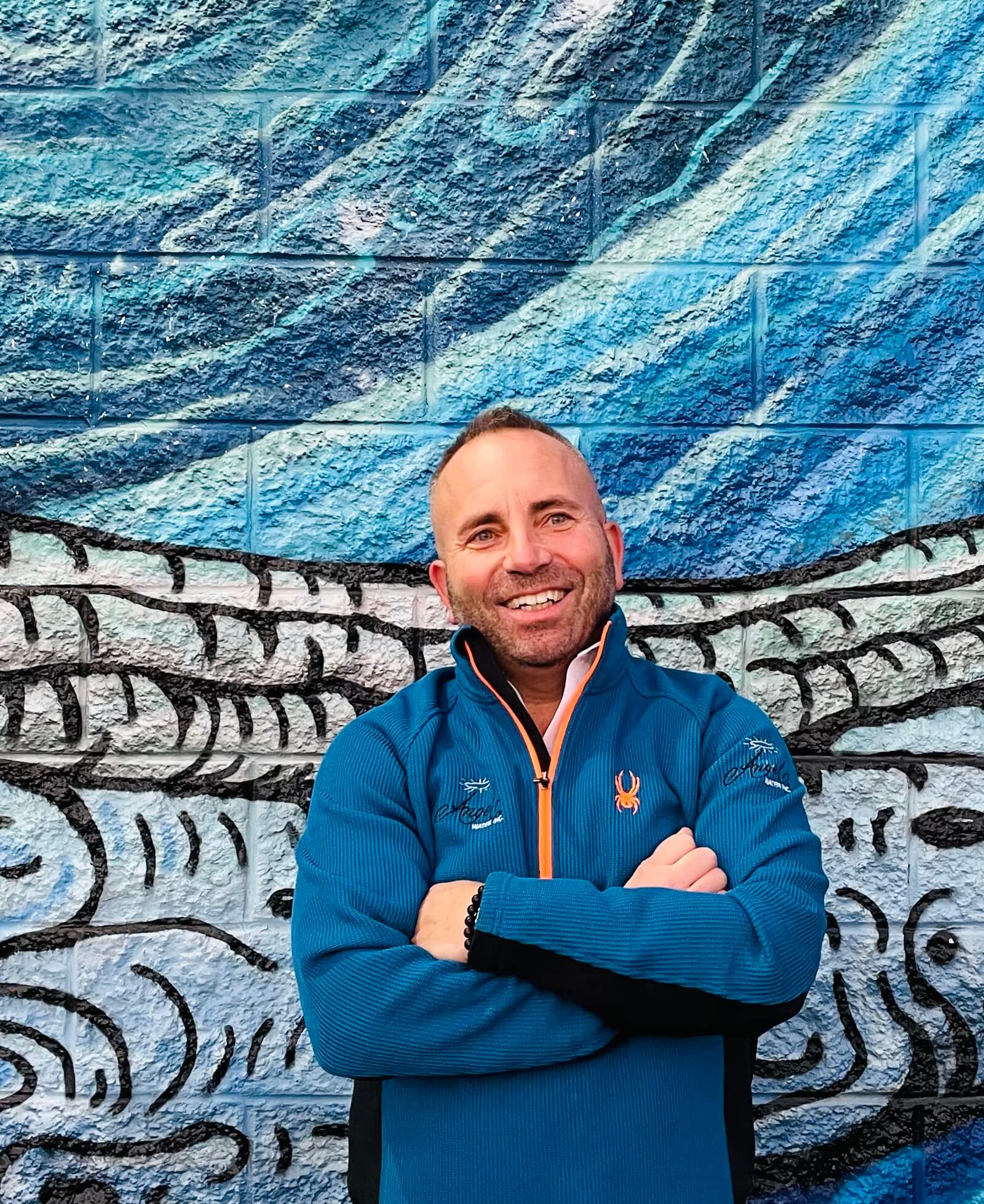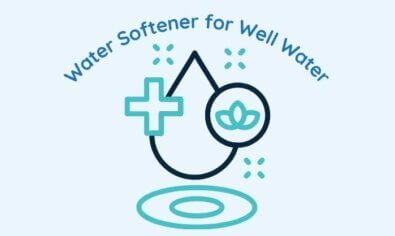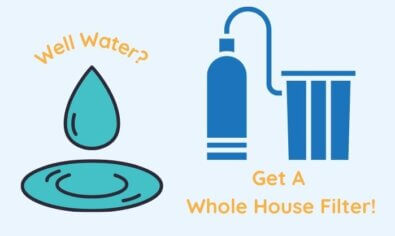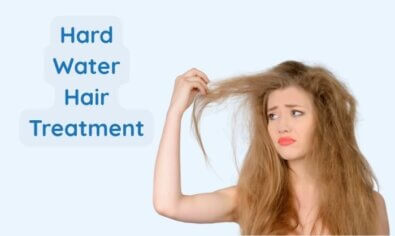How Water Softeners Help Stop Uncontrollable Itching After You Shower
This blog features the following key takeaways:
• Hard water dries out your skin by leaving behind soap scum and mineral deposits after you shower.
• Lotions and creams only temporarily relieve the itchiness caused by hard water.
• A water softener protects against itchiness by removing the excess minerals from hard water.
• Bathing in softened water makes it much easier for your skin to stay healthy and moist.
• You can also stop itchiness by filtering chlorine out of your water.
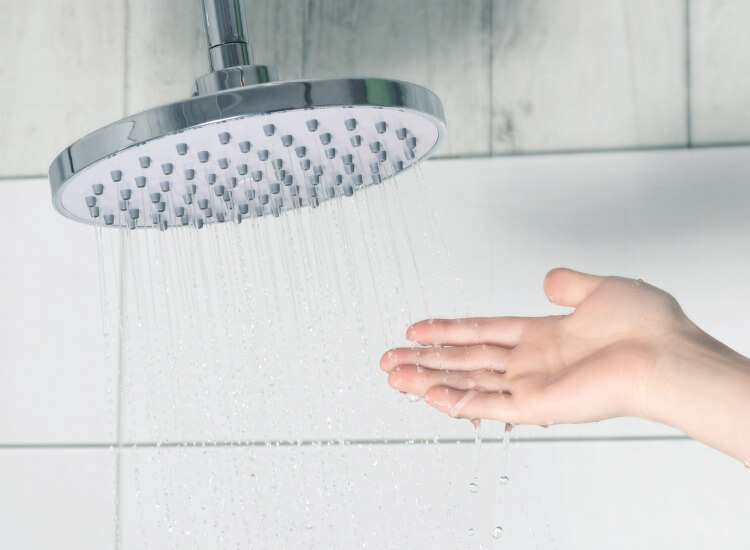
“Don’t scratch it. You’ll only make it worse.”
We’ve all heard that familiar proverb before. And as much as we hate to admit it in the moment, it’s true. Scratching our dry skin doesn’t make it better. It’s only a momentary solution to a much deeper problem.
But how can anyone help but scratch when they feel uncontrollable itching after a shower? It’s a common problem and one of the worst because it comes at a time when you should feel refreshed.
Enough is enough! You deserve a solution that will treat the likely root cause of the itching: hard water.
Hard water is water that contains high amounts of minerals like calcium and magnesium, and it’s very common throughout the country.
Fortunately, the key to preventing that hard water itch is just as common: a water softener.
Already know you want a water softener? Please visit our water softener page to learn more about the systems and professional installation services we offer!
Keep reading to learn how hard water makes you itch and why a water softener is the best possible solution for this problem!

Follow Drew’s mission on YouTube
Hard Water is Hard on Your Skin
Hard water does horrible things to your skin when you shower. Instead of making the cleaning process easier, it makes things more difficult and leaves your skin worse off for your cleaning efforts.
But how can this be? It’s not like you’re showering in water containing chemicals that could melt your skin off! The water just contains some extra calcium and magnesium ions. What’s so bad about that?
To get a clear answer to this question, let’s look at what your water is supposed to do when you shower and how hardness messes up the process.
How Showering Is Supposed to Work
Why do we take showers? The answer is simple, right? We want to wash away all the dirt we accumulate on our bodies throughout the day. The best way to do this is with a combination of soap and water.
Soap and water work well as a cleaning duo because of their chemistry (no pun intended). Soap consists of molecules that have two ends. One end is attracted to water, and the other is attracted to dirt and grease. So, when you wash with soap and water, the water molecules hold onto the soap molecules as they pull dirt away from your skin. Once the soap has captured the dirt, you can easily rinse it away since the water molecules have a firm grasp on the soap molecules.
Nice and simple!
How Hard Water Minerals Mess Things Up
Unfortunately, trying to do this same cleaning process with hard water is not so simple.
The problem has to do with how the calcium and magnesium ions in the water interact with the soap. What once was a productive partnership in which the soap grabbed the dirt and the water washed it away now becomes a dysfunctional relationship.
The problem is calcium and magnesium combine with soap to form a scaly substance known as soap scum. So, whereas the soap was once soluble, meaning the water could easily wash it away, it now becomes insoluble. It no longer dissolves away when rinsed and sticks to your skin instead.
Not only does that soap scum remain on your skin, but so do excess calcium and magnesium particles that the hard water deposits, as it flows over you.
This is the same thing that happens when you try to wash dishes or clothes with hard water. Soap scum forms leaving residue deposits and fading the material.
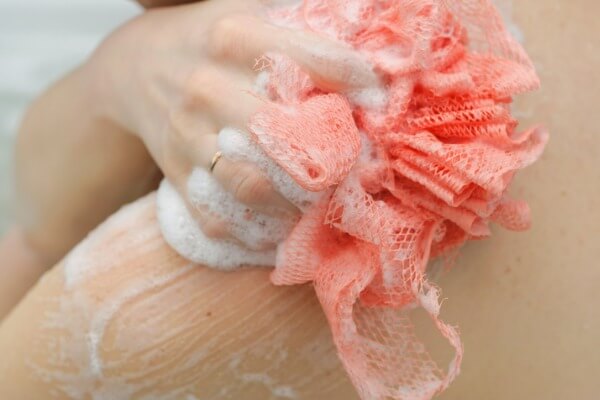
Hard water makes it harder for your soap to do its job.
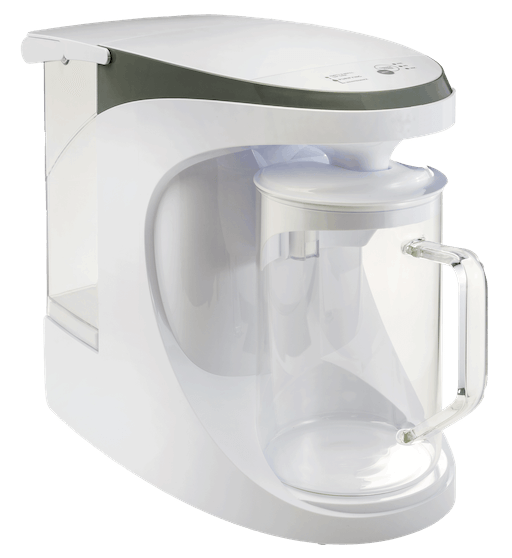
Stop Wasting Money!
Are you spending money every month on Bottled Water for your home or office? That adds up quickly and with inflation, it’s only going to cost more tomorrow.
With the NEW purAsure Counter top Reverse Osmosis System you never have to pay for another case of plastic bottles! Get yours before the price goes up and Enjoy cleaner, healthier water on demand!
The Dry and Itchy Results
You may feel squeaky clean when you shower with hard water, but that squeak is actually soap scum and calcium sticking to your skin!
Your skin needs to breathe to be healthy. When your skin can breathe it is able to produce the natural moisture it needs to avoid getting too dry.
However, when the skin can’t generate this moisture, it leads to the dry, itchy feeling we all hate so much. Soap scum and mineral deposits suffocate your skin by blocking your body’s natural oils from getting through to renourish the skin.
Blocked pores can produce acne and wrinkles along with that itching sensation. They can also lead to or worsen skin conditions like eczema over time.
Lotions and Moisturizers are Temporary Fixes
So, now that we know what’s happening on a microscopic level, let’s zoom back out and consider how we typically handle that uncontrollable itching after we shower.
If you’re like most people, you probably handle it by using creams, lotions or moisturizers to soothe the itchiness. You may even go to your dermatologist to look for a remedy, where you’ll get more creams and balms to try.
However, these solutions are only temporarily effective, which is why we keep using them. They will artificially supply you with the natural oils you can’t produce from within because the soap scum and minerals are blocking that process.
The problem is you must repeatedly apply these lotions because their effects only work for so long. After all, it’s only a matter of time before you need to wash your hands or take a shower again. When you do, the water washes the creams away and adds more scum and minerals to your skin, leaving you with more itchy dryness to soothe away with your temporary lotions.
They say the definition of insanity is doing the same thing over and over and expecting a different result. So, why would we ever expect a lotion, cream or ointment to cure our itchiness when we continue to suffocate our skin with hard water?
What we need instead is something to break this cycle for good.
What we need is a water softener!
Water Softeners Help Break the Cycle of Dryness
Hold on. How can some big piece of equipment in my basement help soothe your uncontrollable itching after you shower? The answer isn’t obvious at first. To understand we must once again shrink down and look at what happens inside the water softener.
The most popular type of water softener is a salt-based system. This device typically consists of two tanks. One tank contains a bunch of small resin beads covered in sodium ions, and the other contains a brine mix of salt and water.
Hard water enters the tank containing the resin beads, and then something magical happens: The beads exchange their sodium ions for the calcium and magnesium ions in the water. In other words, calcium and magnesium ions jump off the water droplet and attach to the beads. Once the softener has removed these minerals, it then sends the water throughout the home for use.
The other tank containing the salt brine solution makes this water softening process repeatable. It periodically sends the salt brine solution into the tank with the resin beads to clean them off. The solution pulls the calcium and magnesium ions off the beads and then rinses them down the drain. As a result, the refreshed resin beads are ready to once keep all the excess calcium and magnesium from messing up your showers.
The resulting water no longer contains the minerals that will gunk up the cleaning process. It only contains sodium ions, which will easily rinse away with the soap as you wash. We call this hydrating cleaning solution soft water.
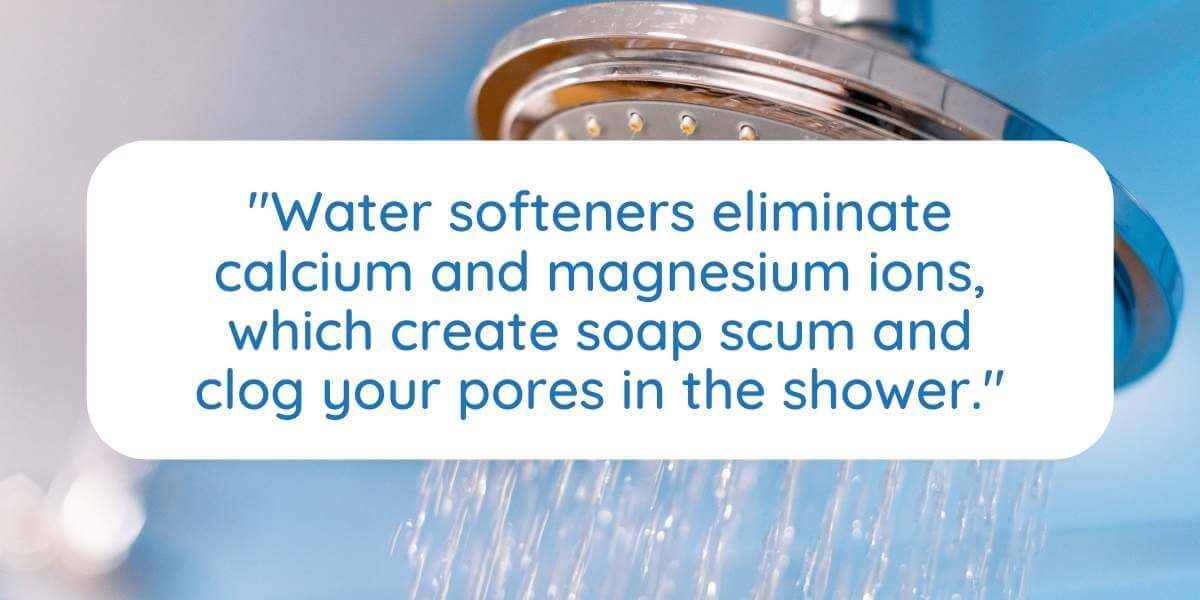
Soft Water is Different in a Good Way
The switch from showering with hard to soft water can be a bit jarring. When you’re used to the squeaky-clean feeling hard water produces, showering with soft water can feel slippery or even slimy in comparison. But this is a good thing!
The reason for this sensation is your water is no longer creating unnecessary friction in the cleaning process. Hard water generates this friction by leaving behind sticky soap scum and mineral deposits. Conversely, soft water leaves nothing behind, allowing the soap and water to slip off your skin as they should.
As a result, your skin can breathe easily with no barriers to prevent natural oils from keeping your skin soft and moist.
What to Do If the Itch Still Persists
As you can see, a water softener works wonders to prevent hard water from making you itch.
However, we want to be clear: a water softener cannot guarantee that you will live itch-free happily ever after. There’s still a chance that you may find yourself itching even after you install a water softener.
There are a few potential reasons for this:
- You could have a skin condition like psoriasis, dermatitis or eczema.
- Cold winter air may be naturally drying out your skin.
- Your skin could be reacting negatively to excessive chlorine in your water.
We’ll look at what to do for each of these below.
What to Do for Skin Conditions or Winter Dryness
A water softener can help alleviate the effects of skin conditions and winter dryness since showering with hard water only makes them worse. However, it cannot cure them. So, if the itchiness persists even after you install a softener, you may want to check with your doctor to see if you have a skin condition. The condition may also go away naturally as the seasons change.
What to Do for Excess Chlorine in Your Water
While we can’t help you with skin conditions or winter dryness, we can help if chlorine is making you itch. We at Angel Water have often encountered this problem in the Chicago region because most of the city water here is treated with chlorine.
We have also found that getting a water softener can worsen the effect chlorine can have on your skin. Soft water leaves your skin without any soap scum or mineral barriers, which allows it to absorb more of the water it encounters. When that water contains a lot of chlorine, the effects can be damaging. The chlorine can kill good bacteria your skin needs to thrive and leave you vulnerable to skin diseases.
If you suspect chlorine may be causing your itchy skin, the best way to check is by getting your water tested. If the test reveals chlorine is the problem, then you can invest in a whole house water filter to remove the chlorine for good.
Want to Learn More About Water Softeners?
Hard water is a pain, and that uncontrollable itching after you shower is only one of the reasons why. It can also cause a myriad of other problems, including cloudy dishes, low water pressure, brown toilet bowl stains and more!
For all these reasons, we frequently recommend water softeners to our customers in Northern Illinois and Southeast Florida. Not only is the water incredibly hard in these regions, but it also contains dangerous contaminants like radium-226 and 228, which some softeners can help with too.
So, if you live in Chicago suburbs like Elgin or Kildeer or Florida cities like Royal Palm Beach, we welcome you to give us a call. We can help you explore quality softeners from top brands like EcoWater, GE and Fleck.
Please call us today at 847-382-7800 or visit the link below to find your ideal softener!
Want Softer Water? Schedule an Appointment Now!
Find out how a water softener can help protect your home from hard water damage. Schedule an appointment with our water specialists today to explore the best solutions for your home.
